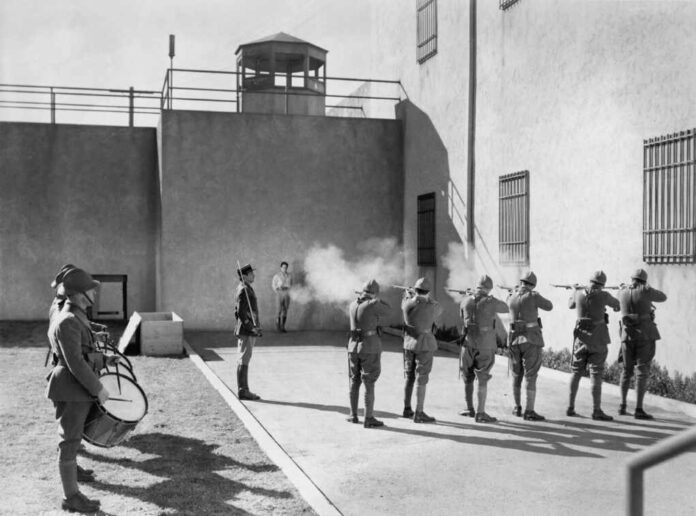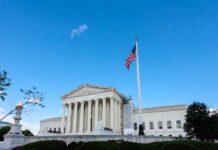
South Carolina’s first firing squad execution in history raises critical debates over the nation’s execution methods.
Story Highlights
- Brad Sigmon is set to be the first person executed by firing squad in South Carolina.
- This marks the first such execution in the U.S. in 15 years.
- The decision stems from a national shortage of lethal injection drugs.
- Constitutional debates on cruel and unusual punishment are reignited.
South Carolina’s Firing Squad Execution: A Historic First
Brad Sigmon, a death row inmate in South Carolina, is scheduled for execution by firing squad on March 7, 2025. This execution marks a historic first for South Carolina and the United States, being the first use of a firing squad in 15 years. Sigmon’s choice of execution method arises amid controversies surrounding lethal injection protocols, with the state having passed a law in 2021 to allow alternative execution methods due to a national shortage of lethal injection drugs.
South Carolina man is scheduled to be executed by firing squad #SouthCarolina #Desertion #OnDeathRow #Mississippihttps://t.co/dhlV1mwHeJ
— Rueben Urias (@RuebenUrias) November 14, 2025
The execution method has not been used in South Carolina before, and Sigmon’s case sets a significant precedent. The state legislature’s decision in 2021 to authorize the firing squad was a response to ongoing difficulties in obtaining lethal injection drugs. This legal change was intended to resolve execution delays and uphold capital punishment laws in the state. The South Carolina Department of Corrections has confirmed its readiness to proceed with the execution, with procedures specified but not disclosed to the public due to legal protections.
Watch: South Carolina court denies last appeal, clears way for firing squad execution
Legal and Ethical Debates Surrounding Execution Protocols
The reintroduction of the firing squad has sparked renewed national debate over execution methods and the ethical implications of the death penalty. Sigmon’s legal team has filed for a postponement, citing concerns over humane treatment and the lack of transparency in lethal injection protocols. While the South Carolina Supreme Court upheld the constitutionality of the firing squad in 2024, critics argue that such methods may constitute cruel and unusual punishment, raising constitutional questions.
Proponents of the firing squad argue it is a practical solution to drug shortages and may be more humane than alternatives like lethal injection, which can sometimes result in prolonged suffering. However, opponents view the firing squad as a step backward, reinforcing the brutality of capital punishment and risking international condemnation for its perceived inhumanity.
Broader Implications for the Death Penalty in the U.S.
The implications of South Carolina’s decision to utilize firing squads extend beyond state borders. The shortage of lethal injection drugs has caused other states to reconsider their execution methods, potentially leading to legislative changes in favor of alternative methods. The debate over execution protocols is likely to influence future legal challenges at both state and federal levels, with possible ramifications for the broader criminal justice system.
As the scheduled execution date approaches, the case has drawn significant attention from legal experts, advocacy groups, and the public. The outcome of Sigmon’s execution could serve as a bellwether for how the U.S. addresses the complexities of capital punishment in the face of logistical and ethical challenges.
Sources:
Death Penalty Information Center: South Carolina Preparing for State’s First Firing Squad Execution
Wikipedia: List of People Executed in the United States in 2025

























